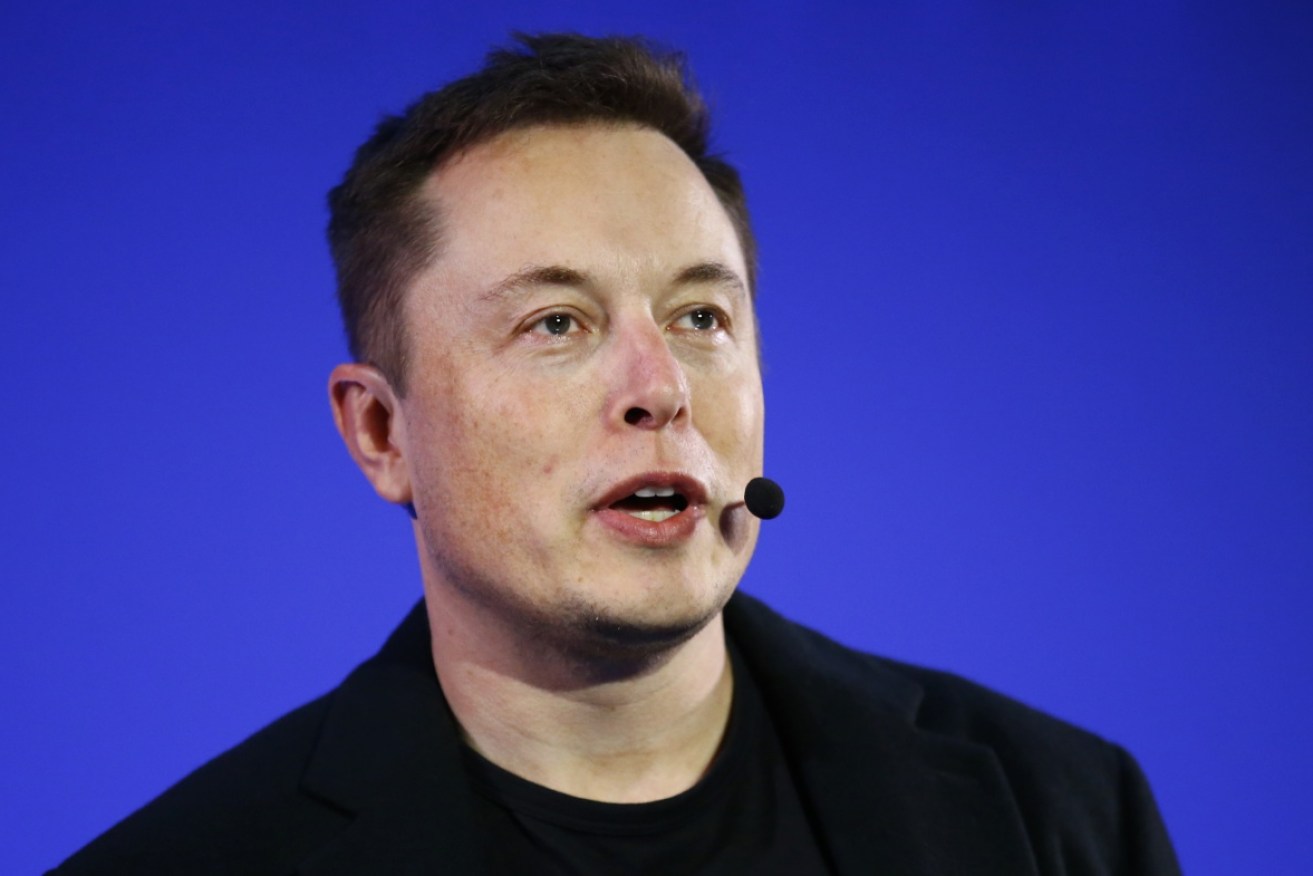Elon Musk will make energy dinosaurs extinct


And it may happen without warning, Mr Musk says. Photo: AAP
The fear-mongering, misinformation and downright lies that have plagued energy policy in Australia since 2009 are rapidly unravelling, thanks in part to that now-famous tweet from tech billionaire Elon Musk.
For the past eight years of the energy hoax, we’ve been fed two lies: first, that the global shift to low-carbon energy isn’t happening, or that Australia just can’t afford to join that transition; and second, that privatising state-owned energy assets would give us cheaper and more reliable energy.
Mr Musk’s Twitter exchange last week with Australian software billionaire Mike Cannon-Brookes helped punch through the deceit.
By promising to fix South Australia’s energy problems “within 100 days”, he set social media abuzz, unleashing the frustration of voters who for years have seen energy policy abused for political gain or distorted by vested interests.
As Mr Musk’s offer highlights, time is running out for the dinosaurs who dumped Malcolm Turnbull the first time around to haul their collective bulk onto the right side of history.
Back in 2009, we were fed the first myth – ‘no global shift’ – when just over half the Coalition party room voted to dump Mr Turnbull because he supported carbon pricing.
His successor, Tony Abbott, waged a hyperbolic campaign against the “wrecking ball” carbon tax that damaged investor confidence and slowed Australia’s transition to cleaner energy.
And yet, as Mr Musk reminds us, renewable energy and storage are moving ahead in leaps and bounds; the need to cut heat-trapping emissions is more urgent than ever; and voters are finally telling governments to stop treating the issue as a political football.
Re-nationalise?
The second myth we’ve been told time and again is that energy privatisation would boost competition. Well, that just hasn’t happened. Prices have soared, reliability fallen.
A new report from the Grattan Institute argues the problem is mainly on the transmission and retail side of the equation – it finds that competition has helped keep downward pressure on prices in wholesale generation.
University of Queensland economist John Quiggin goes much further, arguing that re-nationalisation of transmission lines and the creation of a publicly-owned national energy grid is the only way to fix the current mess.
He draws an analogy with the privatised rail operators in the UK, which pushed the cost of travel up 23 per cent in real terms between 1995 and 2013.
The British government was forced to re-nationalise track maintenance when under-investment led to fatal accidents and safety scares.

The Tesla founder promised he could fix South Australia’s energy problems “within 100 days”. Photo: ABC
It also re-nationalised some operators whose service levels had plummeted – and saved taxpayers and passengers money in the process.
Free markets work very well for delivering most goods and services. However, when the ‘good’ is essential to daily life and business, when it tends naturally towards monopoly, or when it puts too much pricing power in the hands of private firms, there is a strong case for public ownership.
The trouble is, the politicians that led the country into this mess were not being very careful when they headed the other way.
Take action – or risk revolt
People are angry. They want to take control of power back from the abstract ‘market’ that has failed so miserably.
That’s what South Australian Premier Jay Weatherill promised on Tuesday when he revealed a new state energy plan that even includes a new state-owned gas plant.
But even Mr Weatherill should see Mr Musk’s promise as also being a warning – if the politicians get energy policy wrong, households will buy energy storage of their own and ‘defect’ from the grid.
That would be far from ideal, but given the current state of energy policy, who would blame them?








